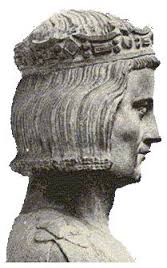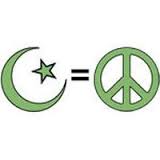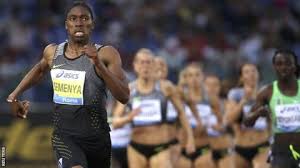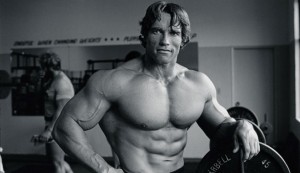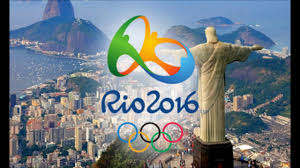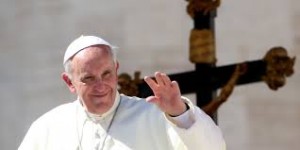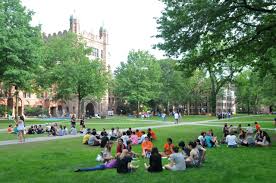 Chesterton wrote a book in 1912, which he called ‘What’s Wrong with the World’. In 2016, there is still a lot wrong with the world, but I will discuss just what is wrong with the modern university. To paraphrase an old warning, caveat discipulus, let the (prospective) student beware, and that goes for parents also pondering where to direct their children as they choose their formative education after leaving the home in early adulthood.
Chesterton wrote a book in 1912, which he called ‘What’s Wrong with the World’. In 2016, there is still a lot wrong with the world, but I will discuss just what is wrong with the modern university. To paraphrase an old warning, caveat discipulus, let the (prospective) student beware, and that goes for parents also pondering where to direct their children as they choose their formative education after leaving the home in early adulthood.
The modern university may be described in one word, drawn from a poem by T.S. Eliot to sum up modern man’s condition in general: Hollow. Like the gilded parties and the characters in F. Scott Fitzgerald’s The Great Gatsby, universities are glitz and show on the outside, but rather empty and barren on the inside.
When one tours a modern campus, when one flips through their impressive, thick academic calendars, when one glances at the glossy brochures and webpages, filled with photogenic co-eds, the feeling of euphoria and exciting potential, a phantasmagorgic series of halcyonic tomorrows, is hard to resist. Yes, many of you, as I, were there once…
But my advice is that resist it one must, for, like a Potemkin village, there is not much reality behind the showy exterior. Whatever reason one has for attending the modern university (and I will discuss briefly later whether there are any), I will break down its shortcomings in four sections: Intellectual, moral, social and spiritual.
1) Intellectual formation should be the main task of a university, to educate and perfect the mind. When one sets out on such an endeavour, or indeed any task, one should ask, as Aristotle does, what is one’s intention or purpose? In the present case, we must ask, what does it mean to ‘form the mind’?
Education implies at least two things: Teaching the person how to think, as well as what he should know. These are two related tasks, which should coalesce in every course taught. The student should be immersed in the great books of our civilization, its history and thought; however, he should also learn, by the principles of reason as well as faith, how to evaluate what he learns. Chesterton in his own pithy way described the task of education as ‘forming good critics’ which, in the Greek sense of ‘critic’ means to judge rightly between truth and falsity, good and evil. All education can be summed up in this one phrase. Or, in a Thomistic formulation, the mark of a trained intellect is one able to make the proper distinctions in conformity with how things really are.
To do this, a university has to be aware of, and committed to, objective truth which, as most readers likely realize, is not a hallmark of Modern U. As Pope Benedict XVI put it, we live under a ‘tyranny of relativism’, a mistrust in, if not an outright denial of, any objective truth. Universities once upon a time believed that there was a truth that could be sought, appropriated and handed down through the ages. It was this commitment to truth that gave the guiding principle to the university itself.
Even if we accept the notion of objective truth, the next question becomes, what truths need be taught at university? Need I learn all the truth? It is ‘true’ that one cannot learn everything at university, but one should know something of most things, especially the most necessary things, those truths that make us most human, and that are most apt for human flourishing. This has always been seen as the task of the university, to hand down that common intellectual heritage and, for Catholics, which also includes the principles of our faith, which direct everything else we know and do.
That is, the Catholic university in particular believed not only in natural truth, but supernatural truth that has been revealed by God through Christ and His Church. These revealed truths, the rational investigation and application of which we call ‘theology’, are not only the only truths that are consistently true, guarded by the charism of infallibility, but they are also the most important truths, dealing with man’s final supernatural end, and the means to attain this end (the life of grace and prayer and the moral life). That is why, as the Church herself implies, a university must not only be Catholic (and it was the Church which founded the first universities in the 12th century), but must also, as Blessed Cardinal Newman wrote in his classic treatise The Idea of a University, have theology as its core discipline, which has been described as the ‘queen of the sciences’.
This is not to turn the university into a seminary or a monastery; rather, theology is taught in such a way that it gives light and direction to all the other courses: Philosophy, history, literature, logic, natural science, mathematics, art, music. The student, following such a curriculum based on the perfection that faith and reason offer, becomes deeply and broadly educated in truth, in all of its manifestations. This process is captured in its essence in Pope Saint John Paul II’s masterful 1998 encyclical Fides et Ratio, as well as in more practical detail in the 1990 Apostolic Constitution on the Catholic University Ex Corde Ecclesiae.
The modern university, on the other hand, even many of the ‘Catholic’ ones, require the student to specialize right after high school, to choose a ‘major’ from the gargantuan academic calendar. (I need not mention vapid courses in ‘queer studies’ or ‘gender theory’ and their ilk, which begin and end with false premises, and are an exercise in futility). The student focuses on this narrow range of studies, often in some STEM sub-discipline (science, technology, engineering, or mathematics), while the arts and humanities languish in obscurity. Whether science or not, the courses are usually taught in a largely historical, statistical, mathematical way, avoiding any reference to objective truth, except the truth that all truth is relative and subjective (excepting, for example, certain technology and engineering courses, which, by definition, must have some objective truth at their basis, such as the stress-quotient of various materials, and the function of organ systems in the body: We don’t want our bridges falling down!). This narrow range of studies only increases as the student proceeds in his discipline.
To add insult to injury, the courses are often taught by sessional teachers or graduate students, who have little or no experience, no job security, and receive minimal remuneration. Full professors teach only minimally, usually upper-year or graduate courses, and spend most of their time in research and writing. After all, the motto is publish or perish, to ensure one’s career advancement, for the attaining of the coveted tenure depends much more on one’s publication record than on what one has taught, or, even less, one’s teaching ability.
Of course, there is nothing wrong, and much that is good and necessary, in specialization, but only once a solid and broad liberal arts foundation has been achieved.
I have heard the argument that one can learn one’s faith, along with philosophy, literature and other less ‘useful’ subjects, ‘on the side’, in evening or weekend catechetical sessions, group encounters, personal reading and so on, while merrily immersed in your functional, job-seeking STEM degree,.
The answer is, to my mind, a resounding not so, or at least not so well. The profound intellectual depths of our Catholic faith and culture cannot be absorbed in such harried and piecemeal fashion. Pope Pius XI put it in 1929 in words that echo into our own millennium:
It is therefore as important to make no mistake in education, as it is to make no mistake in the pursuit of the last end, with which the whole work of education is intimately and necessarily connected. In fact, since education consists essentially in preparing man for what he must be and for what he must do here below, in order to attain the sublime end for which he was created, it is clear that there can be no true education which is not wholly directed to man’s last end, and that in the present order of Providence, since God has revealed Himself to us in the Person of His Only Begotten Son, who alone is “the way, the truth and the life,” there can be no ideally perfect education which is not Christian education. (Divini illius magistri, par. 7)
In my brief years on this earth teaching, I have seen many examples of such a lack of proper intellectual formation, and I was, and still am in many ways, one of them. If you had asked me to explain anything philosophical or theological in my early twenties, I would have been by and large at a loss. But it is a healthy experience to be aware of one’s ignorance.
To take one application of this close to my own heart amongst many, with which I was involved in my time at Modern U years ago, is the emphasis in campus groups on ‘praise and worship’ music, with amplified guitars and drums. There may be a time and place for this (I would argue not in the liturgy), but we are now facing the inherent and real danger even amongst our Catholic students of relegating to the dustbin most of the Church’s musical heritage, Gregorian chant, polyphony and all the musical masterpieces, which Sacrosanctum Concilium declared “a treasure of inestimable value, greater even than that of any other art“. Plato was one of the first to emphasize the fundamental importance of music in intellectual and spiritual formation, and the Church has followed suit.
Many other examples could be adduced: How many current graduates of our venerable institutions, Catholic or otherwise, holders even of post-graduate degrees, could give a reasoned discourse on the creation of man and animals, the rules of reason and science, the Galileo affair, the structure of matter and how this relates to metaphysics, the principles of morality, the proper distinction and place of the passions in the moral life, the cause and effects of the Reformation and other great movements in history, philosophy, even a brief exegesis on Dante, Shakespeare, or any of the great novelists and poets, proper liturgical music, the social teaching of the Church, what the sacraments are, why socialism is wrong, the human person, the mind-body-soul problem, a brief discourse on beatitude and the Trinitarian and Personal nature of God, or who know any Latin at all? The list could go on, but I trust you get my point.
And what are we to say of courses taught without the faith, and without the universal undergirding of theology? How does one study literature, history or even science, with an atheistic attitude? Such learning is fragmentary, disintegrated and often downright disingenuous. For the ‘other side’ is not so reticent in their own a priori suppositions, and will subtly, or not so subtly, introduce students to an agnostic and anti-religious mindset.
2) Now to the question of morality: One might ask, does an educational institution have an obligation to morally form its students? The modern world laughs at the question. They say no, but are disingenuous: Every society, the university especially, whether explicitly intended or not, will indeed shape the moral character of its students, for better or worse. Ponder the encouragement, or at least passive tolerance, of unrestrained sexual activity at Modern U, dormitories with young men and women living side by side, sharing bathrooms, and with no rules on pre-marital sexual relations of any kind, provided they are deemed ‘consensual’ (although even this is now raising numerous legal issues, as I have written previously). Binge drinking, incipient alcoholism and drug use, are also tacitly encouraged, not formally by the university, but almost certainly by vocal and influential hedonsitic elements of the student body. Now we have enforced homosexual and transgendered behaviour and speech codes, all in the name of ‘tolerance’, of course, but intolerantly and rigidly enforced.
The underlying problem is that the modern university offers no objective moral standard towards which to strive. They have no idea, and can have no idea, in their agnostic worldview, of who Man is, nor what he is for. Left to themselves in an ungoverned mixed-sex environment, with few if any rules, the effects of original sin (and whatever personal sins to which one is habituated) take over, and moral chaos ensues. One can safely conclude that if a student becomes morally formed during these years of education, it is in spite of, not because of, life at Modern U.
3) We should also say a word about socialization, which is often misunderstood, even by well-meaning Catholics. Socialization literally means the attempt to ‘build a society’, and in the context of a university student, it means primarily making friendships that will hopefully last a lifetime, and discerning one’s vocation and purpose in life, whether to marriage or to some kind of consecrated life. It does not mean partying and getting drunk with groups of unvirtuous louts.
Aristotle taught that friendship is only possible amongst equals, primarily in intellect and in virtue, and he is right, in the main. Friendship also requires a common pursuit, a shared purpose, and the deeper the friendship, the more commonality is required.
This is very difficult to find at Modern U. One may be able to make friends amongst the campus Catholic groups described above, but these are often small in number, and little is shared outside the meeting times. Most of one’s life and studies are at the university. Make no mistake that these faith-inspired campus apostolates are good and fill a gap, but they should not become the norm, for they cannot substitute for a full, lived Catholic college experience, on the various planes of formation.
4) Finally, there is spiritual formation, and by now I think you can figure out what happens at Modern U in this domain. Man is by nature a spiritual and a religious being, whose ultimate end is eternal beatitude with God, only attainable, by Catholics at least, by a life founded on liturgy and prayer. The modern university has become, as a whole, avowedly agnostic if not outright atheistic and antagonistic to religion and any spiritual dimension, at least of the Catholic-Christian sort. All kinds of quasi-pagan environmental spiritualities abound. Ask yourselves: Is there prayer on campus? Proper liturgy? A shared commitment to a transcendent principle and purpose?
All in all, to develop spiritually at the modern university, with some felicitous exceptions, requires finding most of one’s spiritual growth with various campus groups. But this is, again, in a way analogous to the intellectual dimension, to exteriorize the faith, to make it something one ‘adds on’, and not integrated into what one studies. The spiritual life is relegated to outside one’s intellectual formation (at least formally), and faith and reason are separated, attenuating each of them.
My wonder is that people actually pay money for such education, and a lot of it. Tuition rates are well above the rate of inflation, and beyond what most families can afford. Student debt is at record levels, and many are wondering, What is it all about? Why am I paying for this?
Some argue that they get all they need in homeschooling, or in high school, private or otherwise. Again, not so. I have taught hundreds of students, and have yet to meet one completely formed to face the onslaught they will face at Modern U and, perhaps more so, the world beyond their studies. This is no slight on parents, but I have come to realize that there is something about the time when young people first leave the home, when they have to make the faith and its culture (in a broad sense) ‘their own’, to assimilate the eternal and most necessary truths in an environment that is orthodox, intellectually rigorous, coherent and integral, and that will support them spiritually.
To be sure, some well-brought-up students ‘make it through’ the secularist Modern U relatively unscathed, but that is just the point: They survive, but do not thrive, and they graduate with significant intellectual lacunae in their formation; they are to some significant degree uneducated. I know of no other way to phrase this. A university must be an alma mater, a ‘nourishing mother’. There will be a time for the students to battle the secular world, but they must be intellectually prepared first.
I suppose one could answer by using the modern university to get a functional degree in one of the STEM studies, law, medicine, computer science and so on. These are the least affected by false philosophy, and are still taught with some degree of rigour and truth, albeit limited to the horizon of the material and practical. But, and this is a big but, these subjects do not fully educate you. One may learn a ‘skill’, but one’s mind is not broadened, nor formed in the fullness of truth. Do we really want to produce a whole generation of technically proficient, but undereducated, automatons who can scarcely think for themselves, who have little or no knowledge of history, philosophy, and literature, to say nothing of the teachings of the Church? We are forgetting, not just as individuals but as an entire society, whence we come, and whither we go, the ‘why’ of it all. “My people perish for lack of knowledge” cried the prophet Hosea.
After my own time at one of the ‘modern universities’ years ago (and they have only declined since then, as far as I can discern), I now understand why the graduates of this system will vote for Justin Trudeau, or Obama, or Clinton, or why they see nothing wrong with abortion, nor with euthanasia, why they have no answer to Islam, radical or not, nor, in fact, to any philosophical or theological error, past, present or future. Our young people are ripe for being co-opted and seduced by any false philosophy that comes along. We are losing our capacity to think critically, in conformity with objective truth and reality and, as a result, as Pope John Paul II lamented in Evangelium Vitae, we are developing the “darkest moral blindness”, and “reverting to a state of barbarism which one hoped had been left behind forever”.
But there is hope, small pockets of hope, perhaps, but hope nonetheless. There are colleges that do teach the truth, that do offer an integral formation for the students, that do provide a solid moral and spiritual environment to forge friendships and prepare them for the world. Allow me a final word about our own apostolate: now in our seventeenth year, we here at Our Lady Seat of Wisdom have been doing what we can, in our own humble way, to build a classical university in the Catholic tradition, so we may once again recapture the original ‘idea of a university’ from the ‘heart of the Church’. In his aforementioned Apostolic Constitution on the Catholic University, Ex Corde Ecclesiae, Pope Saint John Paul II declared that it was his “deep conviction that a Catholic University is without any doubt one of the best instruments that the Church offers to our age which is searching for certainty and wisdom“.
To find out more, please browse our webpage. We are always looking for supporters, material and spiritual, and for students who see the value in our mission. For, as the Second Vatican Council’s Pastoral Constitution on the Church, Gaudium et Spes (Joy and Hope) warned, ‘the world stands in peril unless wiser men are forthcoming’.
 instead of buying a resin-type made-in-China from a hardware store and plonking it down, is an immensely satisfying experience. Aristotle was well aware of this, as he made clear in his Poetics, a title derived from the Greek verb ‘poieo‘, to ‘create’ or to ‘make’. Aristotle saw ‘poetry’, in the broad sense of any intellectual, creative activity, as one of the highest activities of Man (besides contemplation). There is more to ‘poetry’, therefore, than what we now would consider ‘poetry’ (rhyming, or at least metrical, verse). We find poetry in any creative endeavour: writing, drawing, drama, music, fashion, film or, yes, even building sheds. The more we pour ourselves into any creative work, by definition, the more poetic it is. After all the work I have seen on the building with which I began this paragraph, what a poetic shed it shall be.
instead of buying a resin-type made-in-China from a hardware store and plonking it down, is an immensely satisfying experience. Aristotle was well aware of this, as he made clear in his Poetics, a title derived from the Greek verb ‘poieo‘, to ‘create’ or to ‘make’. Aristotle saw ‘poetry’, in the broad sense of any intellectual, creative activity, as one of the highest activities of Man (besides contemplation). There is more to ‘poetry’, therefore, than what we now would consider ‘poetry’ (rhyming, or at least metrical, verse). We find poetry in any creative endeavour: writing, drawing, drama, music, fashion, film or, yes, even building sheds. The more we pour ourselves into any creative work, by definition, the more poetic it is. After all the work I have seen on the building with which I began this paragraph, what a poetic shed it shall be.

